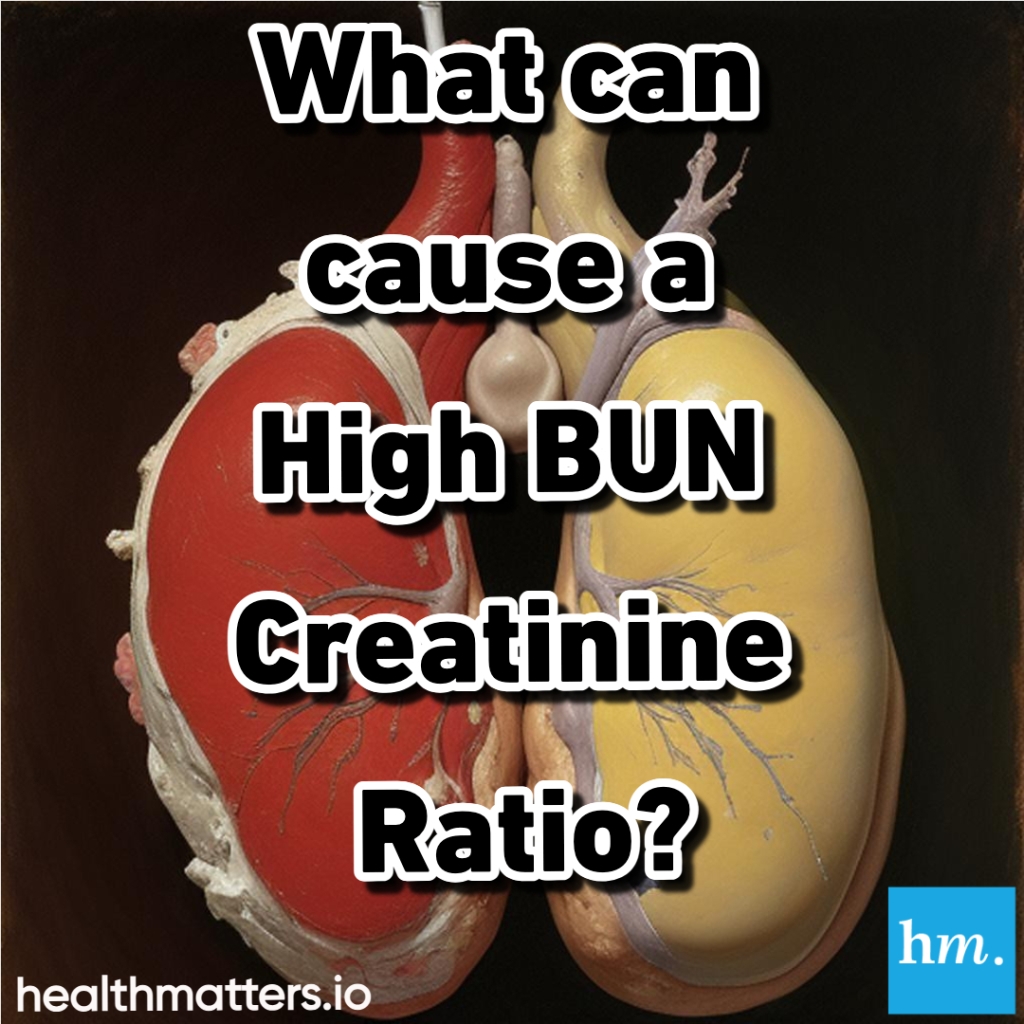
A high BUN/creatinine ratio can be a significant indicator of various underlying health issues. This ratio compares the levels of blood urea nitrogen (BUN) and creatinine in your blood. An elevated BUN/creatinine ratio often suggests that your kidneys are not functioning properly, but it can also be influenced by several other factors. One of the primary causes is dehydration. When your body lacks adequate fluids, it can lead to a concentrated level of urea in the blood, increasing the BUN/creatinine ratio. Additionally, gastrointestinal bleeding, where blood is digested and broken down into urea, can also result in a higher ratio.
Another significant cause of a high BUN/creatinine ratio is renal dysfunction or kidney disease. When the kidneys are not filtering waste products efficiently, it can lead to an accumulation of urea in the blood.
Chronic kidney disease, acute kidney injury, and glomerulonephritis are some conditions that can cause elevated levels. Furthermore, certain medications, particularly those affecting kidney function like nonsteroidal anti-inflammatory drugs (NSAIDs) and some antibiotics, can contribute to an increased BUN/creatinine ratio. Monitoring and managing kidney health are crucial, and you can find more insights about how kidney function impacts this ratio on HealthMatters.io here.
Lastly, dietary factors and excessive protein intake can also elevate the BUN/creatinine ratio. High-protein diets increase urea production as a byproduct of protein metabolism. While this is typically not harmful in individuals with healthy kidneys, those with compromised kidney function might experience significant increases in their BUN/creatinine ratio. It’s essential to balance protein intake, especially if you’re at risk for kidney issues. For a comprehensive guide on how diet influences your BUN/creatinine ratio and practical tips to manage it, visit HealthMatters.io here. Understanding these causes and their impact on your health can help you take proactive steps in maintaining optimal kidney function and overall wellness.
Disclaimer:
Test results may vary depending on your age, gender, health history, the method used for the test, and other things. Your test results may not mean you have a problem. Ask your healthcare provider what your test results mean for you.
The information on healthmatters.io is NOT intended to replace a one-on-one relationship with a qualified health care professional and is not intended as medical advice.
Find out more about HealthMatters.io here: https://healthmatters.io/about-us
